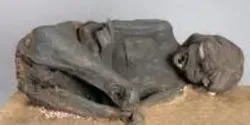News

The Wallops Incident Response Team recently completed an initial assessment of Wallops Island, Virginia, following the catastrophic failure of Orbital Science Corp.’s Antares rocket shortly after liftoff at 6:22 p.m. EDT Tuesday, Oct. 28, from Pad 0A of the Mid-Atlantic Regional Spaceport at NASA’s Wallops Flight Facility in Virginia.

With fears growing over chemical and biological weapons falling into the wrong hands, scientists are developing microrockets to fight back against these dangerous agents, should the need arise. In the American Chemical Society journal ACS Nano, they describe new spherical micromotors that rapidly neutralize chemical and biological agents and use water as fuel.



















